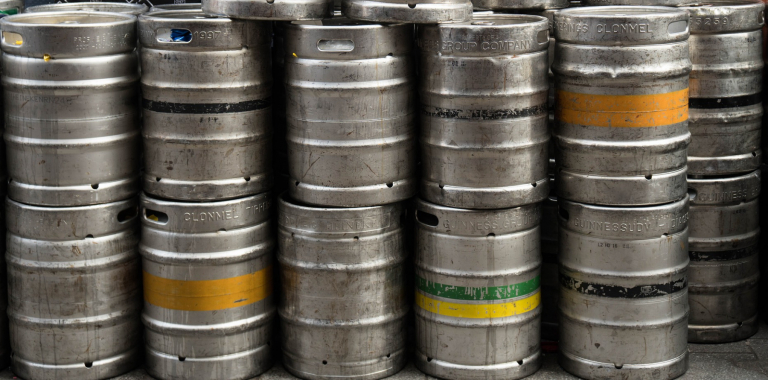The Impact of the Tax Cuts and Jobs Act on the Craft Brewing Industry

In December of 2017, the Tax Cuts and Jobs Act (the Act) was signed into law by President Trump. The Act is the largest tax reform that Congress has passed in the last thirty years. A few of the items in the Act stand to have a significant impact on the craft brewing industry. Below, we have identified some of the key provisions that were passed and will have an impact on small and independent brewers.
Craft Beverage Modernization and Tax Reform Act (CBMTRA) Overview
The CBMTRA was incorporated in the tax reform law and went into effect on January 1, 2018. It will sunset on December 31, 2019.
The CBMTRA reduces the federal excise tax for breweries, wineries and distilleries. Prior to the tax reform, the federal excise tax was $7.00 per barrel. With the new law, domestic brewers who produce 2 million barrels or less annually will be taxed at a rate of $3.50 per barrel on the first 60,000 barrels produced. For any barrels produced over 60,000 and up to 6 million, the federal excise tax is $16 per barrel, reduced from $18. For any barrels produced over 6 million, the federal excise tax would remain at $18 per barrel.
For all other brewers and beer importers, the federal excise tax has been reduced from $18 per barrel to $16 per barrel on the first 6 million barrels. The current rate of $18 per barrel will be retained for barrels over 6 million.
| Domestic Brewers Who Produce 2 Million Barrels or Less | Pre-Reform Federal Excise Tax | Post-Reform Federal Excise Tax |
|---|---|---|
| First 60,000 barrels produced | $7.00 per barrel | $3.50 per barrel |
| 60,001 – 6 million barrels produced | $18.00 per barrel | $16.00 per barrel |
| Over 6 million barrels produced | $18.00 per barrel | $18.00 per barrel |
| All Other Brewers and Beer Importers | Pre-Reform Federal Excise Tax | Post-Reform Federal Excise Tax |
| First 6 million barrels | $18.00 per barrel | $16.00 per barrel |
| Over 6 million barrels | $18.00 per barrel | $18.00 per barrel |
The CBMTRA will also allow the transfer of beer between bonded facilities tax free. Previously, breweries were able to transfer beer between breweries with the same owner. But with the new law, breweries that meet any of the following conditions will be able to take advantage of transferring beer tax free:
- The breweries share the same owner.
- The brewery is independently owned and the transferor has given up all interest in the beer being transferred, and the transferee accepts responsibility of paying the tax.
- The brewery owns a controlling interest in the other brewery.
Increased Section 179 Limits and Bonus Depreciation
Under the Act, breweries are allowed to immediately expense capital investments such as brewing equipment. The maximum amount of Section 179 that taxpayers can expense increased from $500,000 to $1 million; and the phase-out threshold increased from $2.07 million to $2.5 million. These tax provisions will expire in 2025.
The new tax law also increased the bonus depreciation deduction from 50% of the cost of qualifying property to 100% of the cost of qualifying property placed in service after September 27, 2017 and before January 1, 2023. The bonus depreciation percentage decreases by 20% every year after 2022.
Repeal of Domestic Production Activities Deduction (DPAD)
Prior to the reform, breweries could generally deduct 9% of related brewery taxable income under the DPAD provisions. Under the Act, DPAD is repealed for tax years beginning after December 31, 2017.
With the new tax law in effect, breweries stand to be significantly impacted by the Act. We strongly urge you to speak with your tax advisor before acting on any of the information contained in this article. Should you have any questions, please do not hesitate to contact us today!


